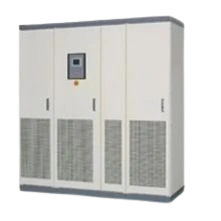Get A Quote
BIS Certification for Utility-Interconnected Photovoltaic Inverters IS 16221 (Part 2): 2015

As the demand for solar energy continues to
grow, it is essential to ensure the safety, reliability, and efficiency of
photovoltaic inverters. Utility-interconnected photovoltaic (Hybrid / On-grid Inverter) inverters are
critical for converting solar power into usable electricity and integrating it
smoothly with the electrical grid. To comply with Indian regulatory standards,
manufacturers must obtain BIS certification for photovoltaic
inverters complying with Indian standards IS 16221 (Part 2): 2015 and
IS 16169: 2014. This guide explores the importance, process, and benefits of
BIS CRS for photovoltaic inverters.
Understanding BIS Certification for Utility-Interconnected Photovoltaic Inverters
BIS (Bureau of Indian Standards) certification
is mandatory for photovoltaic inverters complying with Indian standards IS
16221 (Part 2): 2015 and IS 16169: 2014 under the Compulsory Registration Scheme (CRS). This certification ensures that inverters comply with the Indian
Standard for utility-interconnected photovoltaic inverters, guaranteeing
safety, performance, and reliability. Adhering to BIS standards not only
enhances consumer confidence but also helps manufacturers gain access to the
market.
Why is BIS CRS Certification Necessary for Photovoltaic Inverters?
BIS CRS for photovoltaic inverters is essential for multiple reasons:
Safety Assurance: Protects users from potential electrical hazards such as shocks, overheating, and equipment failure.
Regulatory Compliance: Ensures adherence to national standards, facilitating legal market entry in India.
Consumer Confidence: Builds trust among buyers by demonstrating quality and safety compliance.
Market Competitiveness: Enables manufacturers to gain a competitive edge by aligning with Indian regulatory requirements.
Grid Stability: Ensures inverters operate efficiently within grid parameters, reducing the risk of power disturbances.
Indian Standard for Utility-Interconnected Photovoltaic (Hybrid / On-grid) Inverters
Utility-interconnected photovoltaic inverters must comply with the following Indian standards:
- IS 16221 (Part 2): 2015 – This standard specifies the safety requirements for inverters used in photovoltaic applications.
- IS 16169: 2014 – This standard defines performance testing and safety measures for photovoltaic inverters.
- IEC Standards – These align with international safety and performance benchmarks to ensure global compatibility.
Compliance with these standards guarantees that inverters operate efficiently while minimizing risks related to grid disturbances, electrical shocks, and overheating.
Tests Performed
To obtain BIS CRS certification for photovoltaic inverters, comprehensive testing is carried out in BIS-recognized laboratories. The key tests include:
- Electrical Safety Tests: This evaluates insulation resistance, electrical shock protection, and over-voltage safeguards.
- Performance Testing: This assesses energy conversion efficiency, output stability, and overall operational reliability.
- Thermal Testing: This examines heat dissipation and temperature tolerance to prevent overheating.
- Load Testing: This determines the inverter's performance under varying load conditions.
- Environmental Testing: This ensures durability under a range of temperature and humidity conditions.
- Anti-Islanding Testing: This verifies the inverter's ability to shut down safely during grid outages to prevent accidents.
BIS Registration Process for Utility-Interconnected Photovoltaic Inverters
The BIS registration process differs slightly for domestic and foreign manufacturers but broadly follows these steps:
For Foreign Manufacturers:
- Nominate an Indian Representative: To get FMCS Certification, a foreign manufacturer must appoint an Indian Representative with a valid business presence in India to handle the registration process.
- Online Application Submission: The representative submits an application via the BIS portal, ensuring all details are accurate.
- Sample Testing: Utility-Interconnected Photovoltaic Inverters samples are tested in a BIS-approved laboratory for compliance with IS 16221 (Part 2):2015/IEC 62109-2 :2011 & IS 16169 :2014/IEC 62116 :2008.
- Submit Complete Application: The application, along with test reports and required documents, is submitted online or in hard copy.
- BIS Verification: The BIS reviews documents and may conduct factory inspections.
- Grant of License: Upon successful verification, the BIS grants a license, allowing the use of the CRS mark.
For Domestic Manufacturers:
- Submit Online Application: To get ISI Mark Certification, domestic manufacturers directly apply on the BIS portal to begin the registration process.
- Sample Testing: Like foreign manufacturers, samples are tested at a BIS-recognized lab.
- Submit Application: A complete application, including test reports, is submitted to the BIS.
- Verification: The BIS reviews documents and may inspect the manufacturing facility.
- License Grant: After successful verification, the BIS issues a license for using the CRS mark.
Documents Required for BIS Certification
Below is a comprehensive checklist of documents needed for BIS registration:
General Documents:
● Filled CDF/CCL forms.
● BIS application form.
● Business License (original + English translation).
● Scope of Business License (original + English translation).
● ISO Certification of the manufacturing unit.
● Product marking label details.
Additional Documents for Foreign Manufacturers:
● Authorization letter (if the signatory isn’t the manufacturing head).
● Trademark certificate.
● Indian Representative's registration proof.
● Photo ID of the authorized representative.
Technical Documents:
● User manual or technical specification sheet.
● Test reports from BIS-approved laboratories.
Conclusion
BIS certification for utility-interconnected
photovoltaic inverters is crucial for manufacturers looking to enter the Indian
market while ensuring safety, reliability, and regulatory compliance. The
comprehensive certification process involves product testing and documentation,
confirming that inverters adhere to the Indian Standard for
utility-interconnected photovoltaic inverters.
With expert guidance from EVTL India,
manufacturers can effectively navigate the BIS CRS for photovoltaic inverters,
facilitating a smooth market entry and supporting sustained business
growth.
For professional assistance in obtaining BIS
certification, contact EVTL India today and take the first step toward
compliance and market success!
Free Call Back
Latest News & Update
🚀 Breaking News: New software update available for all users!
💡 Latest Feature: Introducing AI-powered automation tools.
📅 Upcoming Event: Join us for the webinar on September 30th.
🕒 Support Hours: Expanded customer support hours next week.
⚙️ Tech Tip: Learn how to maximize productivity with our latest tools.
Why Choose EVTL INDIA
Expertise in Indian Regulatory Standards
End-to-End Support
Trusted by Top Indian & Global Brands
Fast Processing & Transparent Pricing
Strong Liaison with Indian Authorities
Company Profile














